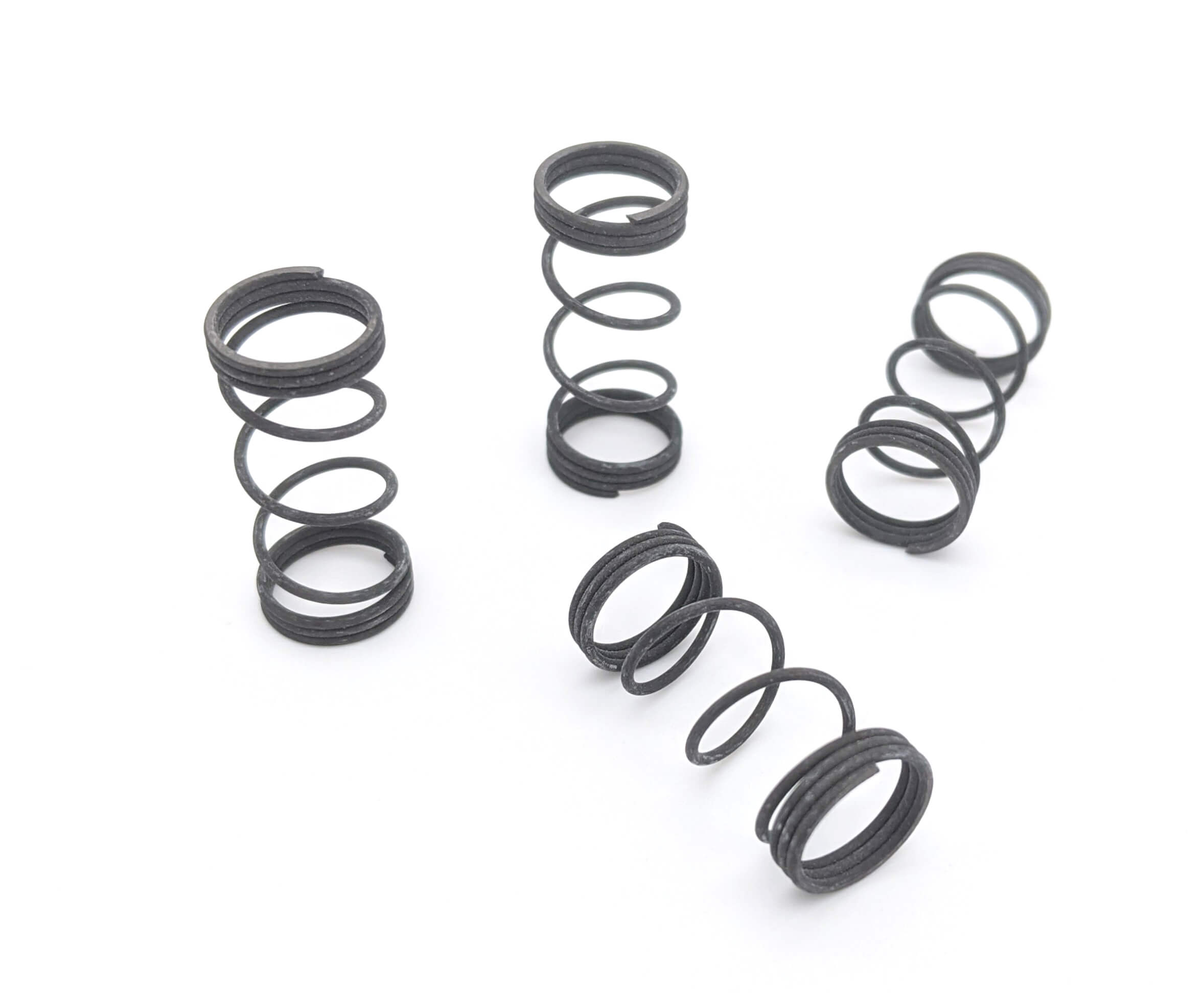Get unique, complex parts easily. No matter your requirements, Chaoyi Spring creates hard-to-produce coil springs and wire forms.
Let us help you create the custom wire form you need, from S-hooks and J-hooks to utility hooks and more.
We work closely with customers across a wide range of industries, helping them design and manufacture made-to-order parts.
Why choose Chaoyi Spring? We prioritize customer-focused collaboration, modern equipment and the latest technology to make your parts per print.
Find the information and guidance you need, from measuring a spring to learning about materials, placing an order and much more.
Conical compression springs, also known as tapered compression springs, are a specialized type of spring that offers unique advantages over traditional cylindrical springs. Their distinctive conical shape, with a gradually


Conical compression springs, also known as tapered compression springs, are a specialized type of spring that offers unique advantages over traditional cylindrical springs. Their distinctive conical shape, with a gradually decreasing diameter from one end to the other, allows for increased spring rate and force, making them ideal for applications demanding high load capacity within a compact space. This article will delve into the design aspects of conical compression springs, explore their diverse applications, and highlight the benefits that make them a valuable choice for various engineering projects.

The design of a conical compression spring involves careful consideration of several key parameters, including the spring index, material properties, wire diameter, and cone angle. The spring index, defined as the ratio of the mean coil diameter to the wire diameter, plays a crucial role in determining the spring's stiffness and load capacity. Choosing the right material, such as high-strength steel or spring-tempered wire, is essential for ensuring the spring's durability and resistance to fatigue. The wire diameter influences the spring's load capacity and deflection, while the cone angle determines the spring's rate and the amount of space it occupies.
One of the primary advantages of conical compression springs lies in their ability to achieve a higher spring rate compared to their cylindrical counterparts. This increased rate is attributed to the varying coil diameters along the spring's length. As the spring compresses, the coils with smaller diameters experience higher stress and strain, leading to a steeper force-deflection curve. This makes conical compression springs particularly well-suited for applications demanding high forces within a limited space.
Conical compression springs find numerous applications in various industries, due to their unique characteristics. Some notable examples include:
The use of conical compression springs offers several advantages that make them a preferred choice for various engineering projects:
While conical compression springs offer numerous benefits, there are some considerations to keep in mind when using them:
Conical compression springs are a valuable component in various engineering applications, offering advantages such as high spring rate, compact size, and increased load capacity. Their unique design allows for efficient force generation within a limited space, making them well-suited for demanding environments. However, it's important to consider the manufacturing cost, limited spring length, and special handling requirements before incorporating these springs into a design. By understanding the characteristics and applications of conical compression springs, engineers can effectively utilize their potential to optimize designs and improve performance in various industries.
In conclusion, conical compression springs are a specialized type of spring that offers unique advantages for various applications demanding high force and compact size. Their design allows for efficient force generation, increased load capacity, and reduced fatigue, making them valuable components in automotive, aerospace, medical, industrial, and consumer product industries. While there are some considerations regarding manufacturing cost and handling, the benefits of conical compression springs outweigh the limitations, making them a worthwhile option for engineers seeking to optimize their designs and enhance performance.
Browse some of the custom wire forms and springs that we manufacture. Don’t see what you need? We specialize in made-to-order products that meet your application requirements.
Visit Our GalleryNeed a custom wire form or coil spring? We make it work. Fill out the contact form and a representative will respond within 1 business day. If you have a PDF or CAD file, you can submit to request a quote.